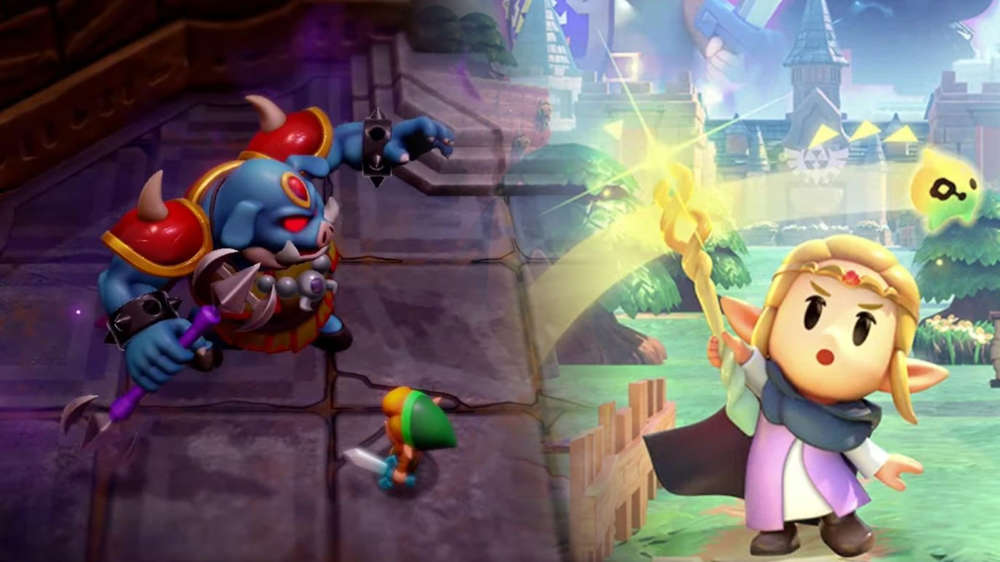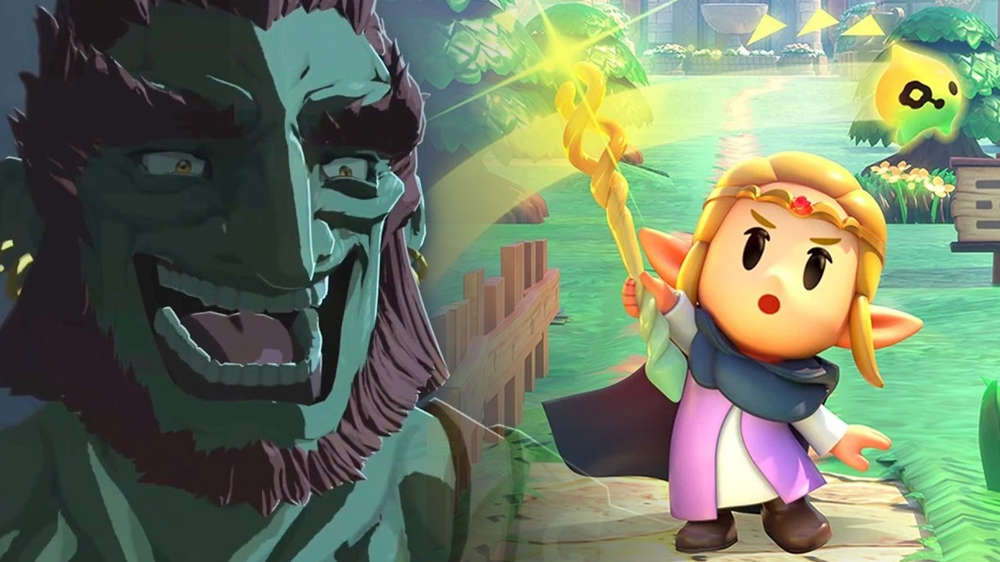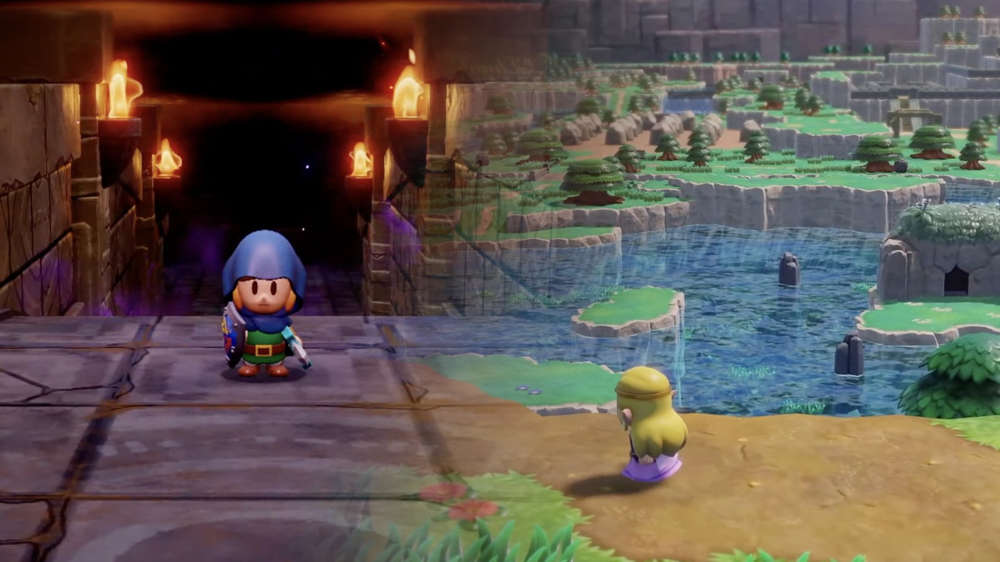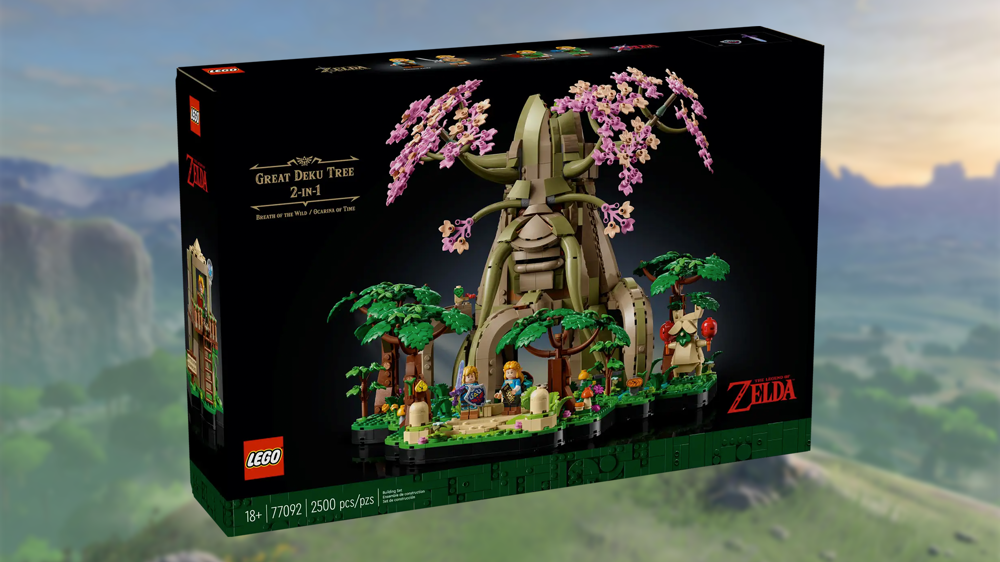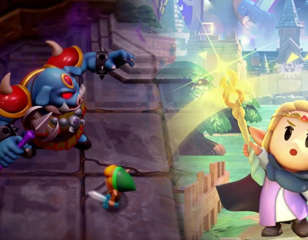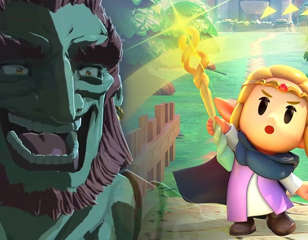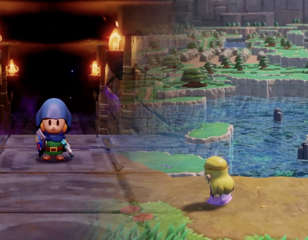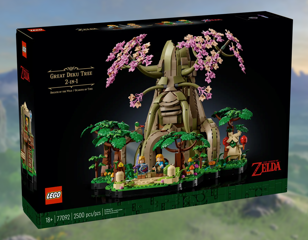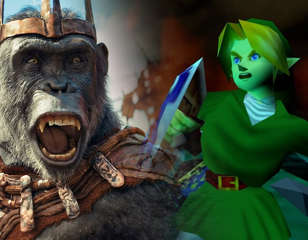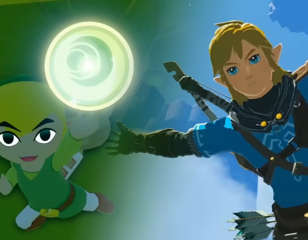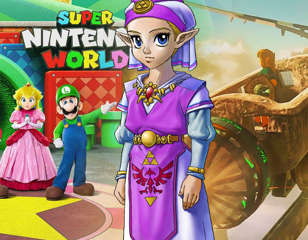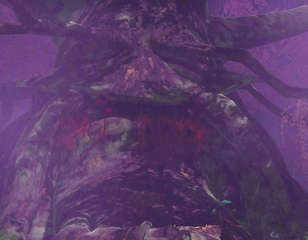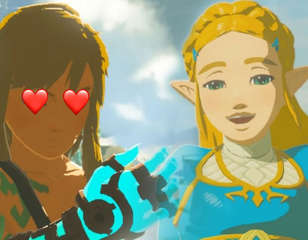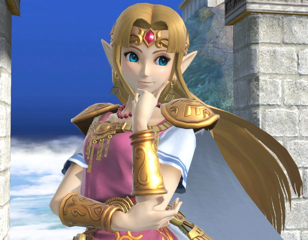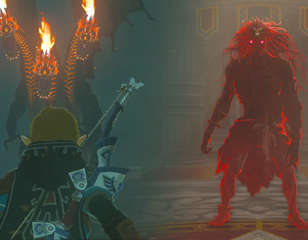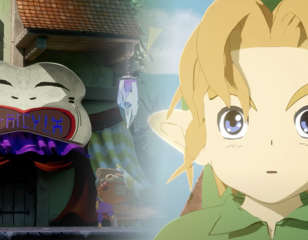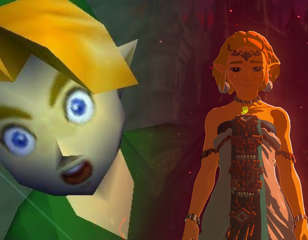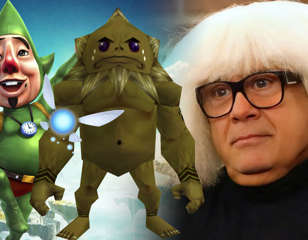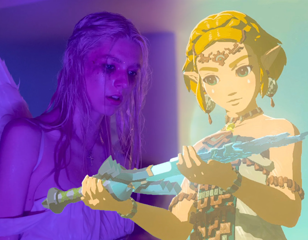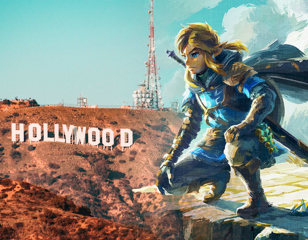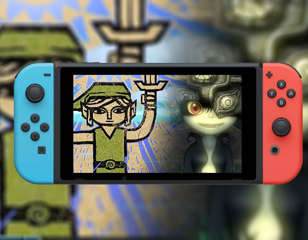2023 gave us the best and worst of AAA gaming
Take a look at some of the highlights and low-lights of 2023 as we revisit some of the year's most successful, and most disappointing, major video games.

Dani Cross
24th Dec 2023 14:30
Image via Larian/Nacon/Nintendo
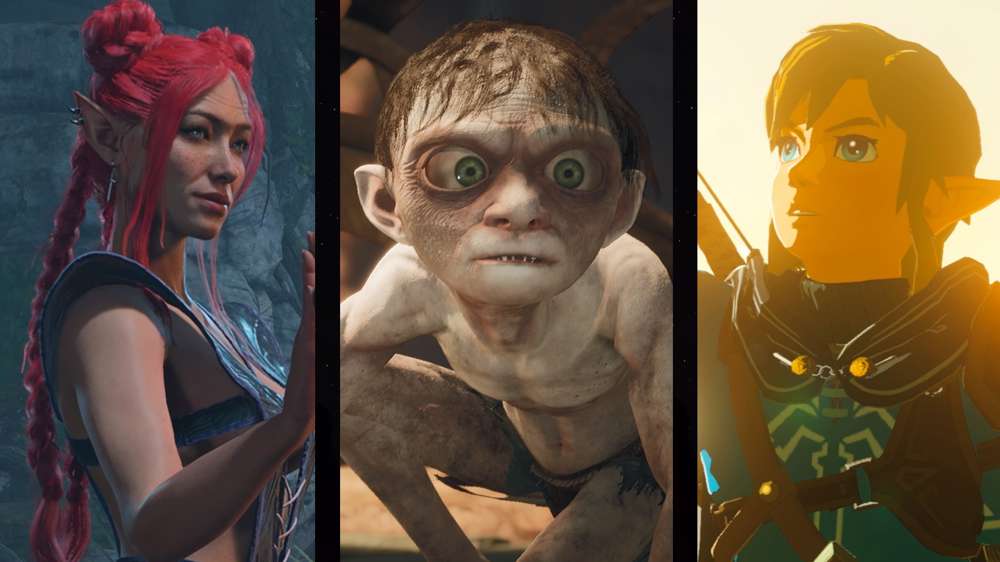
When I think about the best years for video game releases, a lot of dates come to mind.
1998 was a powerhouse of a year, with Ocarina of Time, Metal Gear Solid, Banjo-Kazooie and more. 2004 was certainly stacked too - Half-Life 2, Halo 2 and Paper Mario 2 were the perfect sequels. 2007 might be even better. Super Mario Galaxy alone makes it memorable for me, but it was also home to Halo 3, Modern Warfare and Portal, among others.
More recently, 2017 had something incredible for fans of pretty much any genre. Breath of the Wild is the obvious highlight, with Super Mario Odyssey, Divinity: Original Sin 2, Cuphead, Persona 5 and a whole lot more making their mark. It’s been a while since we’ve had a year of that calibre, but 2023 has made a case for the best year of video game releases we’ve ever experienced.
There’s far more going on behind the curtain than some of the year’s strongest titles would suggest though. Let’s take a look at the years’ highlights and low-lights, and the conditions that led to their eventual release.
The Highlights

The Legend of Zelda: Tears of the Kingdom made its predecessor, Breath of the Wild, feel like a tech demo. That’s Game of the Year winner Breath of the Wild I’m talking about. A game that still tops people’s “best games of all time” lists today.
In short, Tears of the Kingdom took everything that made that game successful and added to it, stretching its world from the darkest depths to the tallest heights. It improved almost all aspects of a game many people already thought to be perfect, whether it’s the temples and boss fights, the weapon-crafting system or the crazy amount of creativity it allows players to have inside its immense sandbox.
It’s an adventure like no other - despite re-using an entire map. The changes made to the world make revisiting it an endless surprise. The ability to jump from the surface to the sky or underground is mesmerising, just like the dragons who you’ll see gliding in and out of chasms and soaring through the skies, an ever-present reminder of the freedom this game revels in at every turn.
In any other year, this game would’ve been an easy pick for Game of the Year, if you care about such a thing. But this was no standard year, as Baldur’s Gate 3 proved when it finally launched this August.

It’s difficult to argue with the countless players calling Baldur’s Gate 3 the greatest RPG of all time. If Tears of the Kingdom gave players the freedom to explore to their heart’s content and find constant surprises, Baldur’s Gate 3 gave us the freedom to forge a journey entirely through our own actions and dialogue.
Every situation will be handled slightly differently by each player, and with hundreds of interesting encounters spread across its huge runtime, that makes for a game unique to the individual. It also has one of gaming’s greatest narratives of late, a story on an epic scale that somehow feels intimate throughout. The love shown by the developers towards their game is clear to see, and makes Baldur’s Gate 3 a carefully-crafted RPG masterpiece.
You could make a case for all kinds of 2023 titles being the best in their genre, whether it’s Street Fighter VI making a claim for the new king of fighting games, Pikmin 4 taking cosy strategy to a new calibre or Super Mario Bros. Wonder reinvigorating Nintendo's 2D platformer when it needed it most. Indie titles like Dredge, Cocoon, El Paso, Elsewhere, Venba, Sea of Stars and more all made a splash this year too - though you can always count on smaller devs to deliver each year.
But with such a huge array of quality games, less successful games are bound to be forgotten. We have more choices than ever before, which is great for players but not so great for our wallets, and as a result, some games can get left behind. I’m not going to focus on those titles though - because while 2023 excelled with genre-defining masterpieces, it also became home to some of the most memorable disasters in modern gaming.
The Low-lights
Redfall should’ve been a system seller. Created by Arkane, the studio behind some of the most critically acclaimed games in recent history, this cooperative vampire-slaying shooter had no right to be anything less than a good time. It was hyped as one of Microsoft’s biggest exclusives, even ending one of their big presentations with a cinematic reveal trailer.
And it might be the company's biggest flop yet. An overall sense of jank pervaded the whole experience. The combat was stiff, the performance was poor and the open-world felt barren and bland.

Playing with friends should make almost anything more fun, but even the fail-safe of co-op failed to pick up the slack. It just made me want to play anything else. Any minor glimmers of hope in the game’s overall design didn’t shine bright enough to make an impact, and even the long-awaited patch didn’t fix the game’s core issues. In my eyes, Redfall is best left in the dark as we move on to better things.
Then there’s Lord of the Rings: Gollum. A shambolic husk of a game that squirmed its way onto our consoles and computers this year, only to be cast into the fire like its grim little protagonist. I’ve never seen a game so unanimously despised. I had the pleasure of reviewing it and, looking back, my 2-star rating seems like a kindness. It deserved lower, but perhaps something in Gollum’s creepy, virtual eyes convinced me to show a little mercy.

Nothing else about LOTR: Gollum is convincing. The parkour felt dated right from the jump, and that soon proved to be the game’s best quality. Its story was laughably uninteresting, and the bizarre puzzles like the one where Gollum tries to create a bird are truly bizarre.
As I mentioned in my review, I got so tired of trying to figure it out that I glitched through the wall and ended up exploring a whole new area before I was supposed to. Even that small slice of fun was ruined when I realised it didn't save my progress, so it was back to making birds for me.
It feels almost harsh to clown on Gollum considering the swift shutdown of the studio that created it. But it’s also important to make sure Nacon, the publisher that oversaw this mess and reportedly strung together an AI apology to save face, doesn't forget the disaster it let happen. They couldn’t even spell the name of the game right, and that pretty much sums up Gollum. An absolute error of a video game.
The Result
While these games are outliers in a strong year, it might not feel so great if you’re one of the many game devs laid off in 2023.
It’s disheartening that in an industry as big and successful as gaming we’re seeing such rapid discarding of skilled staff. This stings worse than any disastrous video game release. And in a way the two are connected - if these games weren’t so poorly managed they might’ve made more of an impact, and developers might not be so worried about their livelihoods.

Even an idea as outlandish as a Gollum game could’ve done well with the right execution, but it wasn’t given the chance. Mismanagement is rife in the industry, yet it’s the workers who feel the brunt of it, not the managers making those decisions. There’s little accountability for the people in charge, and hundreds of game devs have taken the fall instead.
Nacon is still going strong despite leading Gollum studio Daedelic to ruin. Embracer Group, a company gobbling up game devs and IPs like Pac-Man, is allowed to cast Volition aside after one poorly-received title, along with employees at Crystal Dynamics, Beamdog, Gearbox and more. It even announced its intentions to “exploit” the Lord of the Rings IP, as if it wasn’t exploited enough this year.
Now Bungie, a company that managed to earn a strong sense of goodwill among many of its players, has shattered that image after reportedly failing to meet targets by 45%, resulting in major layoffs and an extremely worried Destiny 2 player base. And as I write this piece more news of layoffs seems to appear on my timeline every day.
So while we celebrate the amazing releases this year, we also need to remember what just one disappointing game, or one bad live-service year, can do to a studio. This industry is unstable and the ones in charge of it can throw talented game devs away at a moment's notice if a game underperforms. This no doubt makes game development even more stressful than it already is, leading to even more disappointment.
The best games of this year were created by studios given time and freedom to create their art the way they envisioned it, not pushed along by tight deadlines to push a product out before it's ready. Those are the games players want, and 2023 proved we can have them. It’s up to the rest of the industry to catch up.

About The Author
Dani Cross
Dani is a Guides Writer for GGRecon. She graduated from university with a degree in Broadcast Journalism, then worked as a freelance writer before joining the GGRecon team as a full-time writer in 2023. In her opinion, the best game of all time is Elden Ring – but her favourite is Halo: Reach, a game that created lifelong friendships and somehow started her down the path to a career in media. She’s also way too invested in Pokemon cards, and a big fan of guinea pigs, cats and other cute creatures.
